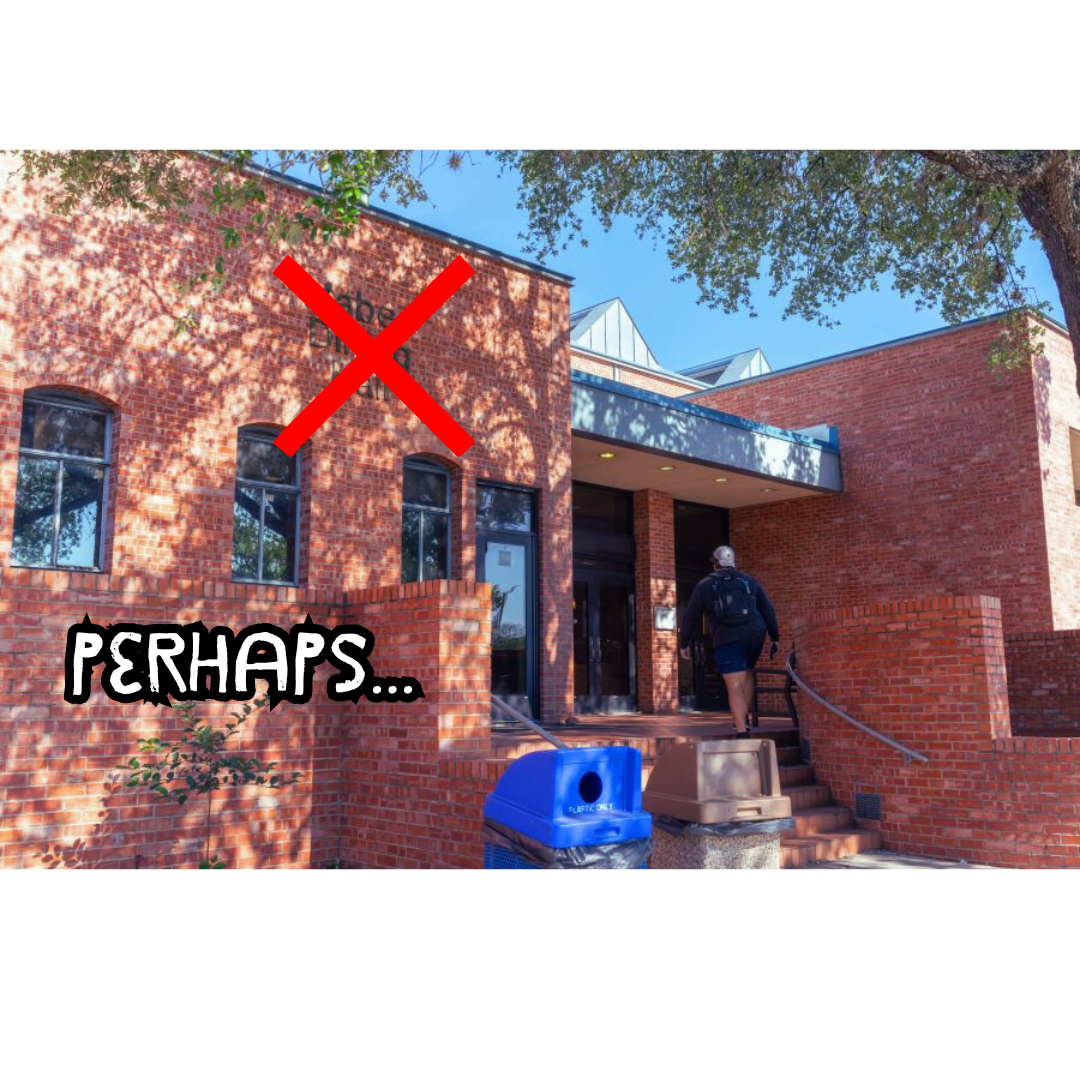Trinity students often take advantage of study abroad opportunities, and the desire to learn a language is a leading factor in the selection of the country. Spain has topped the list for the country most TU students have studied in since 2004, and other western European countries are also fairly popular with students.
This fact is troublesome to Robert Huesca of the international studies department, who is known for chiding his students about selecting countries to study abroad where they will probably travel as postgraduates. So when his opportunity to take administrative leave for a year came up, he had a choice to make.
He knew that he wanted to finally perfect his French, and the obvious choice for someone wanting to live and work in a French-speaking country for six months is France. Given that Huesca is consistently telling students not to squander study abroad opportunities on places in their comfort zones, he realized that he could not pick the obvious choice.
“I figured I’d have no credibility if I didn’t follow my own advice, so I searched for programs where I could study French in Africa. It is definitely a huge challenge, much more so than hanging out in French bistros eating great food and drinking even better wine,” said Huesca, professor of communication and director of international programs.
Huesca sold his house and packed everything away in pursuit of the perfection of his French in Benin, a country in West Africa. The country is rife with lively culture, and is the world’s center of vodun, or voodoo, as it is commonly known.
“About half of the people I talked to thought I was nuts for doing what I’m doing,” Huesca said.
To some students, the move is not uncharacteristic of their understanding of Huesca.
“Dr. Huesca has an eccentric and intriguing thought process. Moving to Africa to learn French is a bizarre thing to do, but if anyone was to do it, it would be Dr. Huesca,” said Matt Prendergast, a senior and former student of Huesca’s.
Huesca’s colleagues are not only intrigued, like students, but also impressed. William Christ, professor of communication observes that Huesca has definitely gone beyond the expected by traveling to Africa for his leave.
“I am very impressed with Dr. Huesca’s decision. He could’ve gone to France to learn French, but instead followed the advice he gives his study abroad students “” “˜stretch yourself, violate your comfort zone,'” Christ said.
Huesca says he understands why people have difficulty understanding such an unusual and bold decision.
“Most people my age””53″”are not usually up for a six month plunge into a new language and culture half a world away. I think they have a hard time relating to this sort of adventure,” Huesca said.
Moving to a place completely unlike home and outside of one’s comfort zone is a challenge for most, and daunting to the majority of people who consider it, but the experience can be extremely rewarding given the chance. Huesca recommends to students who are trying to decide where to study abroad to carefully consider wants and goals.
“Think carefully about your objectives””what is it that you want to get out of studying abroad? Then find a program that seems like a good match. Just because someone had a great experience in London, Paris, Buenos Aires or fill-in-the-blank, doesn’t mean that’s the right choice for you,” Huesca said.
Beyond considering personal wants and goals, Huesca believes that those in an academic setting have a duty to push the boundaries of what feels comfortable.
“We’re so privileged in the academic setting that I believe we have a duty to travel to places that will challenge us and push us outside of our comfort zones,” Huesca said.
Since arriving in Ouidah, a city in Benin, Huesca has taken intensive French lessons five days a week, although he recently cut back the number of days to three instead of five.
In addition to taking French lessons, the program Huesca is participating in also creates opportunities for volunteering. The communication professor has been teaching youth video and multimedia classes since he arrived on site.
The educational system in Benin is such that many children are given failing grades if they do not pass standardized tests, which means that although the grade levels he teaches are limited, the ages of students range widely from 6 to 18.
“The kids I’ve been working with have never had the opportunity to touch a camera or a computer. Seeing their faces light up for the first time they cropped a photo or opened a computer program was pretty moving,” Huesca said.
The Beninese students, with Huesca’s guidance, have been making videos that document elements of life and culture in Benin (these videos can be viewed by searching CIAMOBenin on YouTube).
Transitioning to life in Africa has not been without challenges, naturally. In addition to tangible difficulties including going without electricity for days at a time, taking cold showers every day, and actually living without water once, holistic differences in culture and daily life have been hard to deal with.
“Africa is a challenging place to understand culturally, socially, and politically. I’m a pretty seasoned traveler, so my comfort zone is pretty big. Benin was pretty much what I expected. It’s a lot like Latin America, where I’ve spent a lot of time. It’s a very vital and lively place with streets teeming with traffic, vendors, pedestrians, and people hanging out. It’s a bit more kinetic than I expected””more intense pushing, shoving, and yelling than we do in Latin America,” Huesca said.
Amidst the challenges presented by moving to a culture on a continent completely apart from his own, Huesca is mostly excited to continue engaging with different aspects of the culture.
“The city where I live is the heart of vodun, which I plan to begin exploring in earnest soon,” Huesca said.







